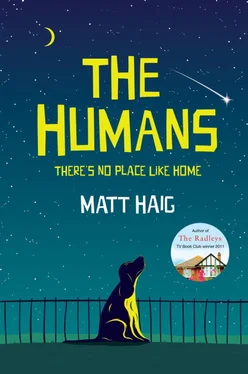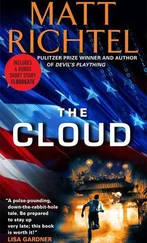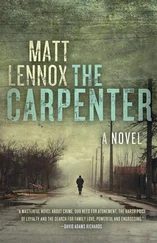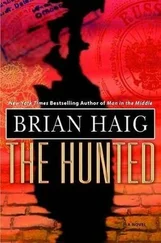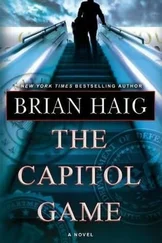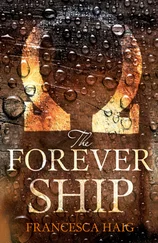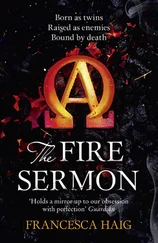I was confused. I was lost.
I wished I had a new wound, just so she could attend to me.
‘What are you looking at?’ she asked me.
‘You,’ I said.
She looked at Gulliver. He couldn’t hear us. Then she looked back at me, as confused as myself.
We are worried. What are you doing?
I told you.
Well?
I am accumulating information.
You are wasting time.
I’m not. I know what I am doing.
It was never meant to take this long.
I know. But I am learning more about the humans. They are more complicated than we first thought. They are sometimes violent, but more often care about each other. There is more goodness in them than anything else, I am convinced of it.
What are you saying?
I don’t know what I am saying. I am confused. Some things have stopped making sense.
This happens, occasionally, on a new planet. The perspective changes to that of its inhabitants. But our perspective has not changed. Do you understand that?
Yes. I do understand.
Stay pure.
I will.
Humans are one of the few intelligent beings in the galaxy who haven’t quite solved the problem of death. And yet they don’t spend their whole lives screeching and howling in terror, clawing at their own bodies, or rolling around on the floor. Some humans do that – I saw them in the hospital – but those humans are considered the mad ones.
Now, consider this.
A human life is on average 80 Earth years or around 30,000 Earth days. Which means they are born, they make some friends, eat a few meals, they get married, or they don’t get married, have a child or two, or not, drink a few thousand glasses of wine, have sexual intercourse a few times, discover a lump somewhere, feel a bit of regret, wonder where all the time went, know they should have done it differently, realise they would have done it the same, and then they die. Into the great black nothing. Out of space. Out of time. The most trivial of trivial zeroes. And that’s it, the full caboodle. All confined to the same mediocre planet.
But at ground level the humans don’t appear to spend their entire lives in a catatonic state.
No. They do other things. Things like:
– washing
– listening
– gardening
– eating
– driving
– working
– yearning
– earning
– staring
– drinking
– sighing
– reading
– gaming
– sunbathing
– complaining
– jogging
– quibbling
– caring
– mingling
– fantasising
– googling
– parenting
– renovating
– loving
– dancing
– fucking
– regretting
– failing
– striving
– hoping
– sleeping
Oh, and sport.
Apparently I, or rather Andrew, liked sport. And the sport he liked was football.
Luckily for Professor Andrew Martin, the football team he supported was Cambridge United, one of those which successfully avoided the perils and existential trauma of victory. To support Cambridge United, I discovered, was to support the idea of failure. To watch a team’s feet consistently avoid the spherical Earth-symbol seemed to frustrate their supporters greatly, but they obviously wouldn’t have it any other way. The truth is, you see, however much they would beg to disagree, humans don’t actually like to win. Or rather, they like winning for ten seconds but if they keep on winning they end up actually having to think about other things, like life and death. The only thing humans like less than winning is losing, but at least something can be done about that. With absolute winning, there is nothing to be done. They just have to deal with it.
Now, I was there at the game to see Cambridge United play against a team called Kettering. I had asked Gulliver if he wanted to come with me – so I could keep an eye on him – and he had said, with sarcasm, ‘Yeah, Dad, you know me so well.’
So, it was just me and Ari, or to give him his full title Professor Arirumadhi Arasaratham. As I have said, this was Andrew’s closest friend, although I had learnt from Isobel that I didn’t really have friends as such. More acquaintances. Anyway, Ari was an ‘expert’ (human definition) on theoretical physics. He was also quite rotund, as if he didn’t just want to watch football but become one.
‘So,’ he said, during a period when Cambridge United didn’t have the ball (that is to say, any time during the match), ‘how are things?’
‘ Things ?’
He stuffed some crisps into his mouth and made no attempt to conceal their fate. ‘You know, I was a bit worried about you.’ He laughed. It was the laugh human males do, to hide emotion. ‘Well, I say worry, it was more mild concern. I say mild concern but it was more ‘wonder if he’s done a Nash?’’
‘What do you mean?’
He told me what he meant. Apparently human mathematicians have a habit of going mad. He gave me a list of names – Nash, Cantor, Gödel, Turing – and I nodded along as if they meant something. And then he said ‘Riemann.’
‘Riemann?’
‘I heard you weren’t eating much so I was thinking more Gödel than Riemann, actually,’ he said. By Gödel, I later learnt, he meant Kurt Gödel, another German mathematician. However, this one’s particular psychological quirk was that he had believed everyone was trying to poison his food. So he had stopped eating altogether. By that definition of madness, Ari appeared very sane indeed.
‘No. I haven’t done one of those. I am eating now. Peanut butter sandwiches mainly.’
‘Sounds like more of a Presley,’ he said, laughing. And then he gave me a serious look. I could tell it was serious because he had swallowed and wasn’t putting any more food in his mouth. ‘Because, you know, prime numbers are fucking serious, man. Some serious shit. They can make you lose it. They’re like sirens. They call you in with their isolated beauty and before you know it you are in some major mind-shit. And when I heard about your naked corpus at Corpus I thought you were cracking up a bit.’
‘No. I am on the rails,’ I said. ‘Like a train. Or a clothes-hanger.’
‘And Isobel? Everything fine with you and Isobel?’
‘Yes,’ I said. ‘She is my wife. And I love her. Everything is fine. Fine.’
He frowned at me. Then he took a moment’s glance to see if Cambridge United were anywhere near the ball. He seemed relieved to see they weren’t.
‘Really? Everything’s fine?’
I could see he needed more confirmation. ‘Till I loved I never lived.’
He shook his head and gave a facial expression I can now safely classify as bewilderment.
‘What’s that? Shakespeare? Tennyson? Marvell?’
I shook my head. ‘No. It was Emily Dickinson. I have been reading a lot of her poetry. And also Anne Sexton’s. And Walt Whitman too. Poetry seems to say a lot about us. You know, us humans.’
‘Emily Dickinson? You’re quoting Emily Dickinson at a match?’
‘Yes.’
I sensed, again, I was getting the context wrong. Everything here was about context. There was nothing that was right for every occasion. I didn’t get it. The air always had hydrogen in it wherever you were. But that was pretty much the only consistent thing. What was the big difference that made quoting love poetry inappropriate in this context? I had no idea.
‘Right,’ he said, and paused for the large, communal groan as Kettering scored a goal. I groaned too. Groaning was actually quite diverting, and certainly the most enjoyable aspect of sport spectating. I might have overdone it a little bit though, judging from the looks I was getting. Or maybe they had seen me on the Internet. ‘Okay,’ he said. ‘And what does Isobel feel about everything?’
Читать дальше
